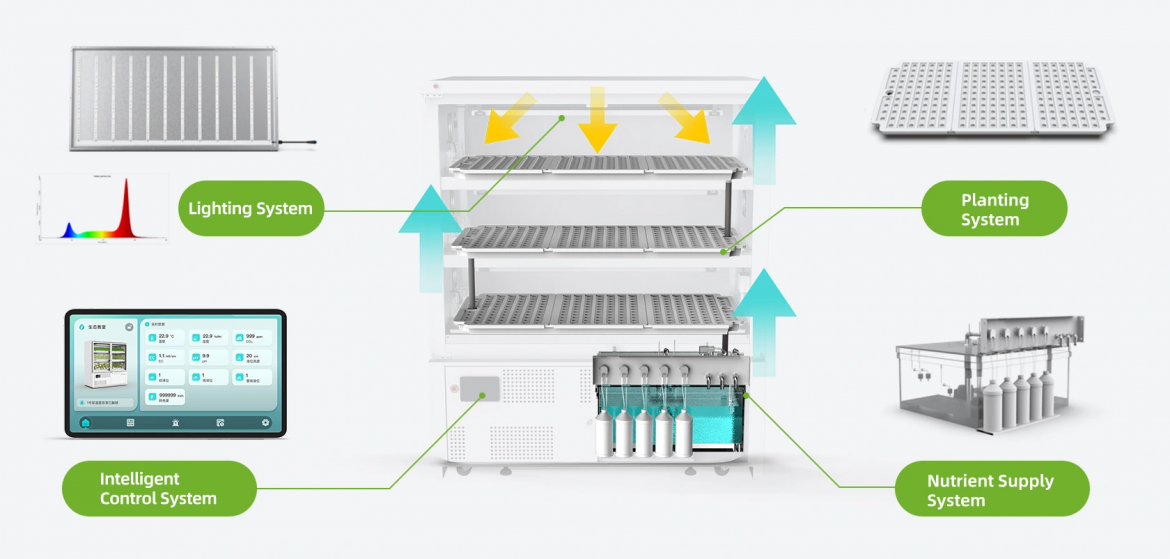Agriculture and the environment share a deep, interdependent relationship. Modern farming not only relies on natural resources such as water, soil, and sunlight, but also significantly influences them through cultivation practices and technological interventions. As sustainability becomes a global concern, controlled environment farming has emerged as a forward-thinking approach that minimizes environmental impact while maintaining agricultural productivity. By utilizing precision technologies, farmers can manage resources efficiently, reduce waste, and ensure consistent yields regardless of external climate conditions.
Controlled Environment Farming: Redefining Agricultural Practices
Unlike traditional open-field cultivation, controlled environment farming operates within an enclosed system that allows for full management of temperature, humidity, light, and nutrients. This advanced method enables crops to grow under optimal conditions throughout the year, significantly improving resource efficiency. It reduces water consumption, eliminates pesticide use, and prevents soil degradation. For regions like the Middle East, where arable land and water are limited, or for urban spaces in North America and Europe, this approach offers a sustainable alternative that aligns with the increasing demand for food security and environmental responsibility.
Technological Innovation Through 4D Bios
Among the companies contributing to this transformation, 4D Bios plays an active role by developing intelligent agricultural systems that combine automation, digitalization, and sustainability. Their Full-Control Planting Equipment exemplifies this vision. This specialized indoor planting system is a self-contained unit that integrates multiple control mechanisms for lighting, nutrition, and air flow. It enables users to manage the entire growing process with precision, supporting different planting modes without the need for traditional building infrastructure. With its modular and adaptable design, the system can be rapidly deployed across diverse spaces—making it ideal for use in educational institutions, research centers, and professional horticulture environments.
Environmental Responsibility and Global Relevance
The global movement toward sustainable farming practices underscores the importance of reducing environmental pressures while ensuring stable agricultural production. By applying systems such as controlled environment farming, resource utilization becomes more balanced, carbon emissions are lowered, and biodiversity is better protected. Companies like 4D Bios provide comprehensive solutions that align with regional sustainability goals—from energy-efficient operations in Europe to water-saving initiatives in the Middle East, and urban food production systems in North America and Australia.
Conclusion
The relationship between agriculture and the environment is no longer one of simple dependence—it is a collaborative balance that demands innovation and accountability. Through continuous research and technology-driven solutions, 4D Bios is helping reshape how modern agriculture interacts with nature. Their Full-Control Planting Equipment demonstrates how precision management and modular design can promote sustainable growth while addressing the global challenge of environmental preservation.
